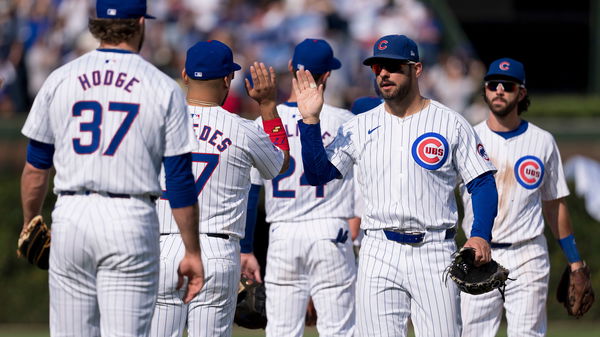

Joe Maddon, a manager who once stood at the cutting edge of baseball thinking, offered a pointed observation recently. “It’s absolutely the front office’s game,” he pronounced, sounding a note of increasing alarm about the direction of Major League Baseball. The three-time Manager of the Year, best known for guiding the Cubs to that drought-busting World Series, isn’t railing against numbers themselves. He is questioning, instead, who holds the power that data provides, proposing a power shift that has left seasoned baseball minds feeling sidelined in the field they once mastered.
Maddon painted a scene of a power shift, where the relationship between the dugout and the front office was changing. “As a coach, I’m not out there creating my own methods. I’m following the methods that are being given to me, primarily through data.” He acknowledged the accuracy of the data, but pointed to the problem: “all of that stuff is taken from upstairs… to downstairs… There’s no leeway to make adjustments anymore based on what you see.” He even shared an anecdote where an infield coach wanting to adjust positioning was told bluntly, “Just play the dots.” Maddon feels coaches are being told to “stop thinking” and ignore their hard-earned instincts.
Maddon’s irritation was more than talk; it was rooted in real clashes, especially managing the Los Angeles Angels. He remembered GM Perry Minasian breaking protocol during one game. Minasian called the trainer on the spot and told him to take superstar Mike Trout out of the game. Maddon viewed that as a serious violation, undermining his authority in his own dugout. It felt like clear proof that the front office believed they could manage minute-to-minute actions from a distance, irrespective of the man in charge on the field.
ADVERTISEMENT
Article continues below this ad
And other moments only cemented his belief that rigid systems were replacing human judgment. Maddon did not like the long pre-game meetings filled with data. He believed that players needed useful “nuggets,” not complicated “dissertations” that made them play slower. He also despised the Angels’ bullpen “matrix.” The algorithm was “insulting,” he railed. This system dictated pitcher availability purely by numbers, ignoring how a pitcher actually looked or felt. It happened during Brandon Marsh‘s swing analysis. It robbed Maddon or his coaches of a key ability — to make decisions on the feel and observation of the moment.
ADVERTISEMENT
Article continues below this ad
Ex-Cubs manager’s critique carries significance
Maddon isn’t the only one singing this sad song in this baseball world. Hall of Fame pitcher Pedro Martinez lamented that baseball is “being turned into a math problem,” pleading to “bring back the human element.” Even a builder of analytics-driven champions in Boston and in Chicago, Theo Epstein, has said that analytics sometimes get in the way of the game’s aesthetic and its emotional appeal — an argument that there is a certain lack of balance in the game now.
But not everyone views analytics as a runaway train hijacking the game. New York Yankees skipper Aaron Boone insists teams are “missing the boat” if they aren’t fully invested in using all available information, blending data with baseball knowledge. Twins GM Thad Levine called himself a centrist, explaining that analytics is just one “piece of the puzzle” in the mix with scouting, and other measures of performance. Old-school legend Tony La Russa, at least, had a reputation for blending deep statistical analysis with traditional strategy.
ADVERTISEMENT
Article continues below this ad
So why does Joe Maddon’s perspective carry so much weight? His resume speaks volumes. We’re talking about a manager with 1,382 career wins and a solid .532 winning percentage. He was the manager of the year three times (twice with Tampa Bay, once with the Chicago Cubs). He is best known as the man who directed the 2016 Cubs to their first World Series championship in 108 years. And constructed winners with varied payrolls and was lauded for innovation, making his critique of the current evolution particularly noteworthy.
Now the question is: Where do you think the line should be drawn between analytics and managerial feel in today’s game?
What’s your perspective on:
Is baseball losing its soul to analytics, or is this the future of the game?
Have an interesting take?
ADVERTISEMENT
ADVERTISEMENT
ADVERTISEMENT
ADVERTISEMENT


Is baseball losing its soul to analytics, or is this the future of the game?